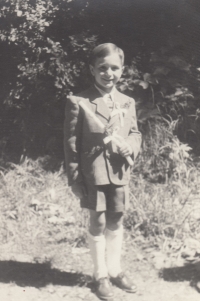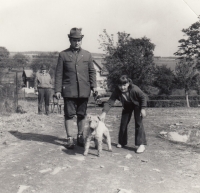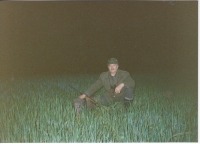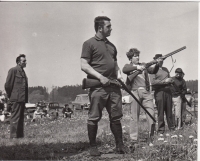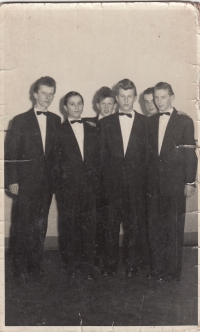I like it here

Download image
Horst Hofmann came from a German family in Broumov, he was born on 14 November 1940 and his first memories are connected with the end of the war in his hometown. His father died of typhus in 1942. After the defeat of the Nazis, he and his mother had to leave their apartment and ended up in internment for a time in makeshift wooden barracks, then in a shared apartment with another German family. Thanks to his mother’s specialisation, they were able to stay in Czechoslovakia, but he was a second-class citizen until the 1980s. He had no choice of education or employment, performed low-skilled manual labour all his life and often faced pressure and bullying because of his origins. Instead of being defined as Czech or German, he always considered himself primarily a “Broumovak”, his lifelong love being nature, the Broumov region and hunting.
